Research & Evidence Building Programme Implementation Policy Advocacy Incubation
Research & Evidence Building Programme Implementation Policy Advocacy Incubation
What We Do
Gender Equality
Economic Empowerment of Women Towards Equality and Justice
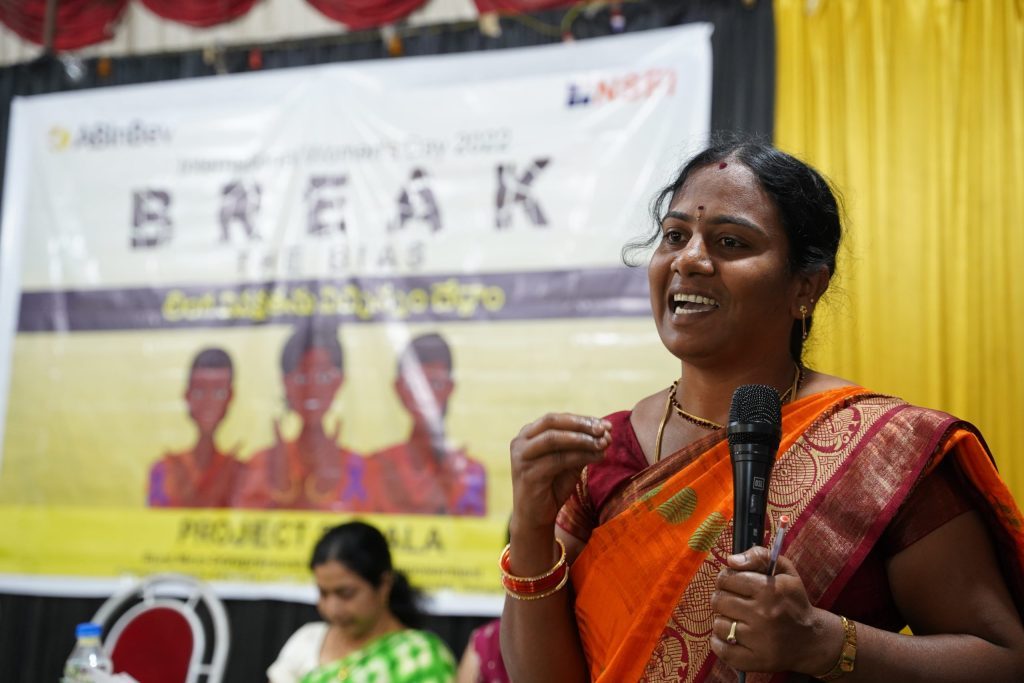
SDG 5
Geographies
Himachal Pradesh, National Capital Region, Telangana, Haryana, Karnataka, Gujarat
NSFI interventions in this ‘area of work’ predominantly have been enabling a favorable environment for women to make a choice that can complement their existing Income Generation Activities (IGA). Unlike IGA programmes with a proportion of the beneficiaries being women, the programmes curated NSFI are ‘all women’ interventions with intensive focus on what works and what needs to improve their social and economical status. The programmes designed by NSFI have been factoring in demand for goods & services in local or national markets, skill & resources available for women in a geography, time available for women, their aspirations and vision to establish enterprises and scale. Predominantly the programmes are curated for a given geography and socio-cultural context though the implementation approach is standardised and evolved for relevance & assured impact.
Impact Factor
The journey that started in 2018 has touched the lives of more than 3000 women directly and is still continuing. With a specific focus on sustainability of interventions, NSFI works on various approaches that sustain the impact and take it to scale with or without external support.
Unique Factor
Focus beyond capacity building and seed funding towards mentoring & business viability and its sustenance.
Climate Action
Farmer Plot to Policy: Action for evidence - policy for impact - action at scale
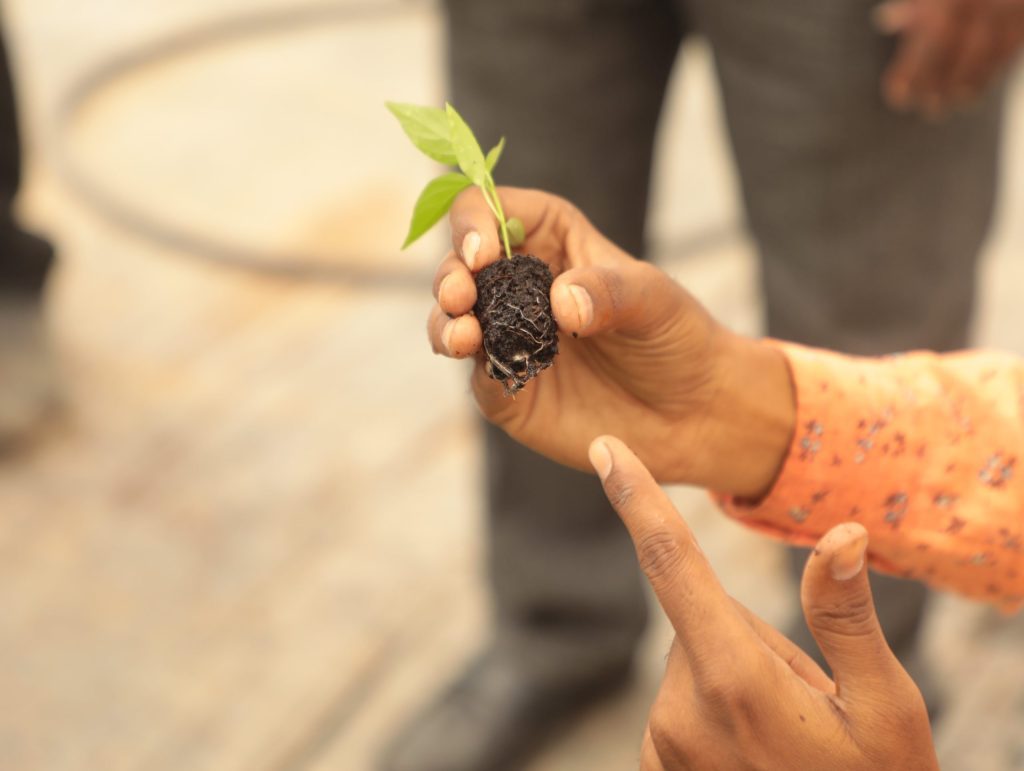
SDG 13
Geographies
Himachal Pradesh, Rajasthan, Haryana, Regional & National Level
NSFI”s work in this area ranges from taking up demonstrations of climate resilient technologies on farmers’ fields, to building the capacities of farmers on climate resilient and sustainability practices, to bringing together innovators in the domains of climate change adaptation and mitigation for deliberations on the merits of their technologies and their scale up opportunities.
Impact Factor
Over the last 7 years, NSFI has promoted Climate Resilient Technologies in Sugarcane, Mango, Vegetables and various other food grains (wheat, paddy, maize etc.,) through demonstrations and capacity building efforts. Further, NSFI brought together 473 innovators, 279 Policy Makers and worked in more than 70,000 farmers.
Unique Factor
Focus on relevance, appropriateness, frugality for the end user to enable adoption and benefit accrual.
Agriculture & Livelihoods
Capacity Building - Demonstration - Research - Farming as Enterprise
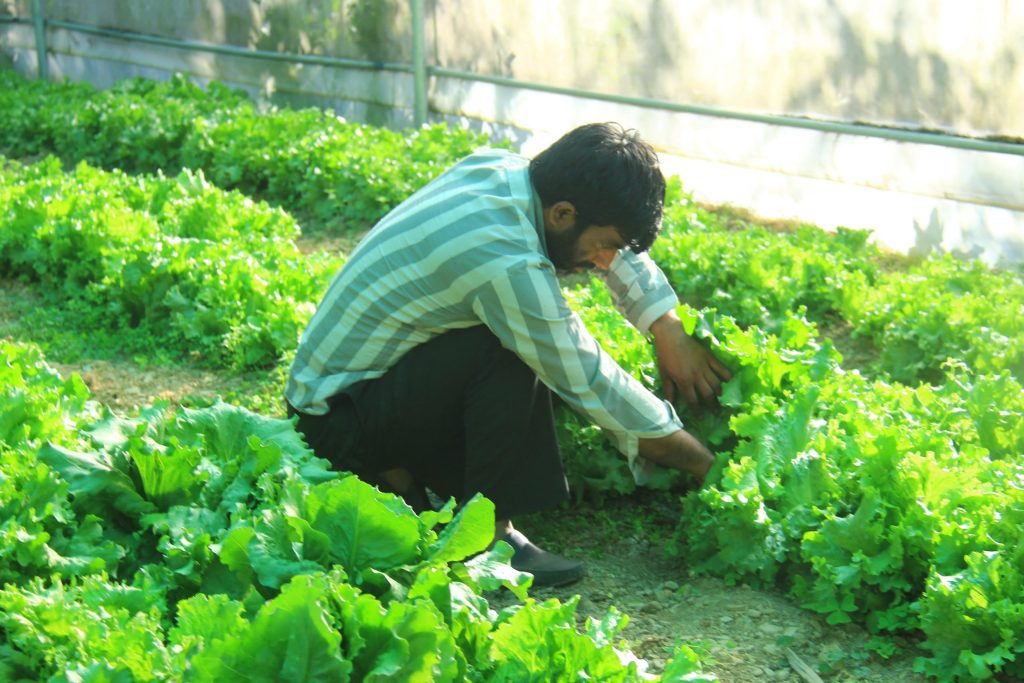
SDG 1
SDG 2
SDG 12
Geographies
Tamil Nadu, Karnataka, Andhra Pradesh, Maharashtra, Madhya Pradesh, Rajasthan, Haryana, Uttar Pradesh, West Bengal, Jharkhand, Odisha.
Increase their access to information, technologies & innovations through market and value chain integration is the Mission that NSFI pursued since its inception. In this direction, research & analysis of various technologies / innovations, their demonstrations on the field, their promotion among farming communities and advocacy to scale up the successful technologies and innovations has been systematic approach of NSFI. NSFI served farmers in more than 24 States and contributed to the farming communities in Afghanistan and Indonesia. The focus of all activities in the domain of Agriculture & Livelihoods has been on the income and expenditure of farming activities and the financial benefit that accrues to the farming community, especially the small and marginal farmers.
Impact Factor
-
Over 48,500 farmers have been trained between 2015-2019
-
Over 60% farmers have shown interest in adopting to mobile and internet banking system.
-
About 90% of the farmers were trained on importance of regular savings, investments, credit opportunities and insurance (crop insurance and others).
-
Capacity Building of Civil Society Organisations (CSOs) / Social Enterprise in digital marketing & finance modalities
-
Fund Raise for CSOs / Social Enterprise for sustainability
Unique Factor
Behavioural change communication and orientation of Farms as Enterprises / Businesses
Digital & Financial Literacy / Inclusion
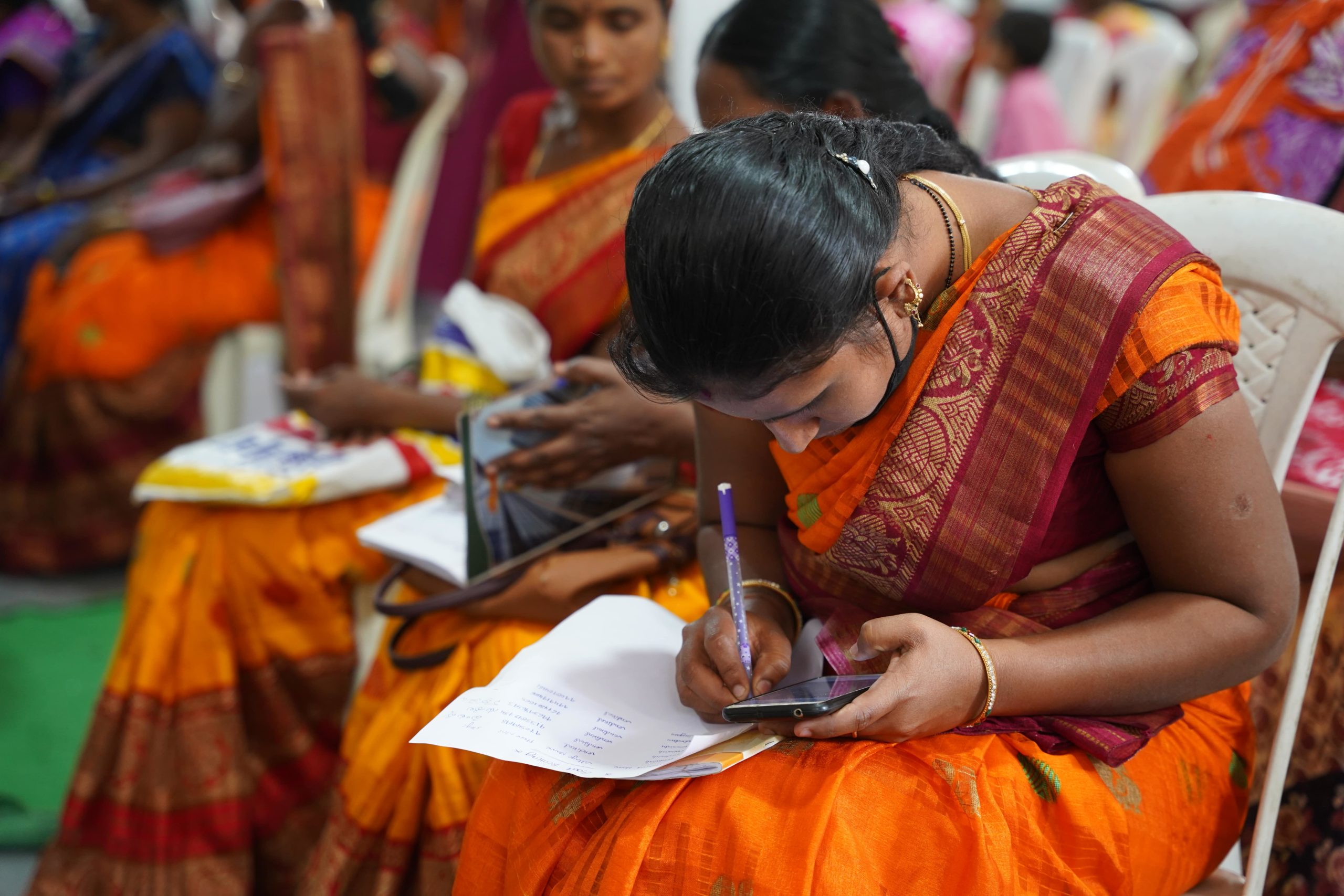
SDG 4
SDG 8
SDG 9
Geographies
Haryana & Rajasthan; Tamil Nadu, Karnataka, Andhra Pradesh; National Outreach
Multiple projects that involved Sustainable Practice Adoption in Sugarcane, Mango, Wheat, Paddy, vegetable crops and other crops with various funding partners, were taken up in the domain of Financial Literacy. The objective of the projects is to inform, educate and build hands-on skills of poor so that they could adopt sustainable practices, leverage financial services and social security schemes of the Government by applying digital literacy skills, and to educate the target group on importance of regular savings, investments, credit opportunities and insurance (crop insurance and others). Further, the digital inclusion interventions included capacity building of various civil society organisations / social enterprises to reach the communities in rural hinterlands towards their increased digital and financial access to markets and other services
Impact Factor
NSFI target groups include farmers, agri entrepreneurs offering various goods & services in agri value chains, farmers institutions cooperatives and farmer producer organisations. NSFI through its own staff and partners' has contributed to agriculture and livelihoods across the length and breadth of the country with more than 1 Lakh farmers, more than 100 FPOs and more than 500 entrepreneurs.
Unique Factor
Life-cycle approach imparting application skills for modern communication media & channels.
Incubation & Entrepreneurship Development
Partnerships - Ideation - Incubation - Sustenance
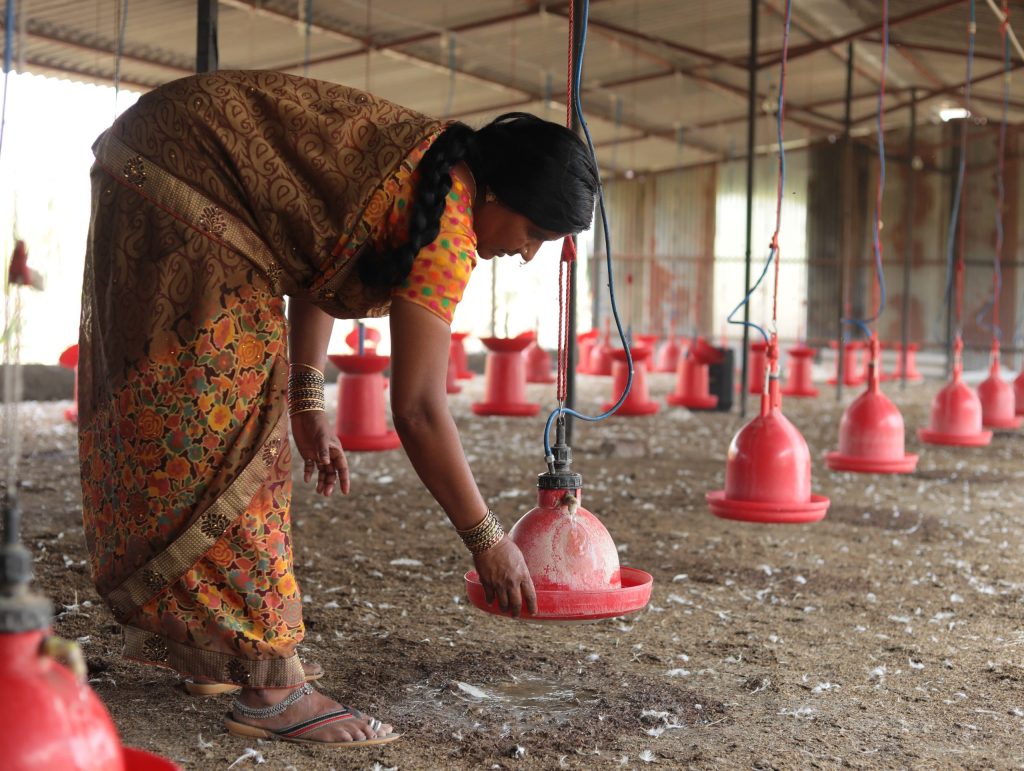
SDG 17
There is lot to do to, but less resources (time, money and human effort) for application. NSFI in its efforts to enable scale up of interventions and their positive impact, pursues this area of work on an ongoing basis. In this direction, NSFI is not only working towards establishing social enterprise that brings positive developmental impact on equity and inclusion principles, but supports last mile ecosystem support to communities and build their capacities for lasting impact.
Impact Factor
NSFI acknowledges the contribution of the collaborating and grant making partners of mentioned interventions for the impact the organisations have been creating. Further, various partners and teams of these organisation, their collaborators paved the way for creating a positive impact by www.asci-india.org; www.skillgreenglobal.com.
Unique Factor
Impact sustenance beyond project geographies and timelines is the priority area from day 1 of the project.
Gender Equality
Economic Empowerment of Women Towards Equality and Justice
SDG 5
Geographies
Himachal Pradesh, National Capital Region, Telangana, Haryana, Karnataka, Gujarat
NSFI interventions in this ‘area of work’ predominantly have been enabling a favorable environment for women to make a choice that can complement their existing Income Generation Activities (IGA). Unlike IGA programmes with a proportion of the beneficiaries being women, the programmes curated NSFI are ‘all women’ interventions with intensive focus on what works and what needs to improve their social and economical status. The programmes designed by NSFI have been factoring in demand for goods & services in local or national markets, skill & resources available for women in a geography, time available for women, their aspirations and vision to establish enterprises and scale. Predominantly the programmes are curated for a given geography and socio-cultural context though the implementation approach is standardised and evolved for relevance & assured impact.
Impact Factor
The journey that started in 2018 has touched the lives of more than 3000 women directly and is still continuing. With a specific focus on sustainability of interventions, NSFI works on various approaches that sustain the impact and take it to scale with or without external support.
Unique Factor
Focus beyond capacity building and seed funding towards mentoring & business viability and its sustenance.

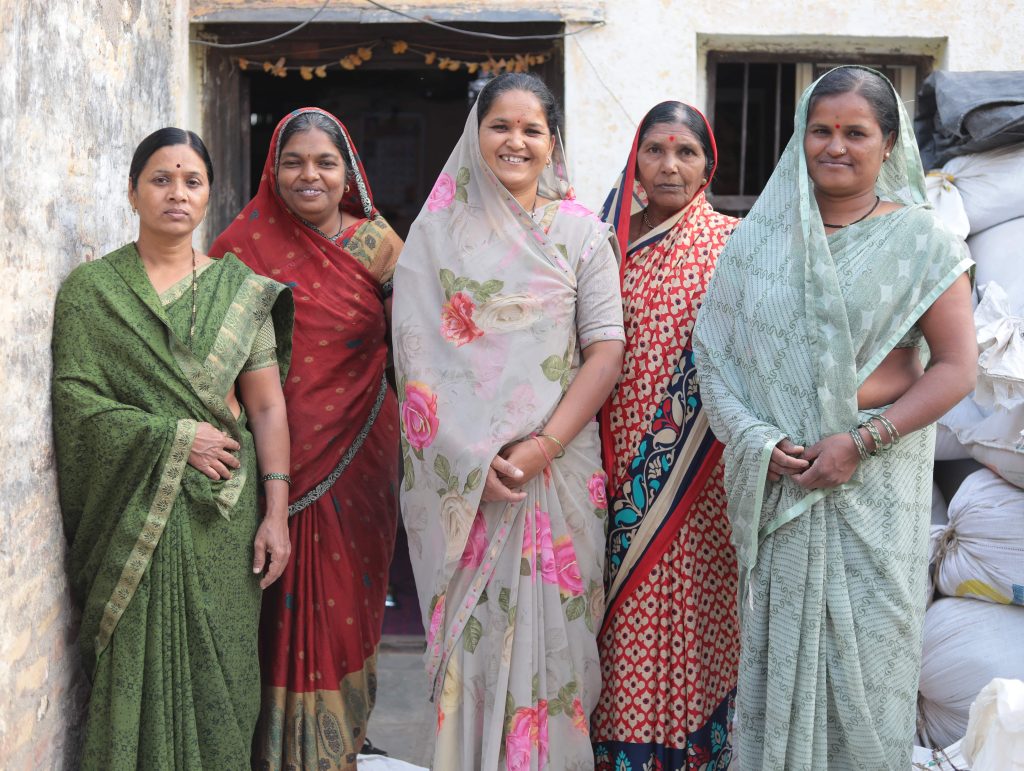
Climate Action
Farmer Plot to Policy: Action for evidence - policy for impact - action at scale
SDG 13
Geographies
Himachal Pradesh, Rajasthan, Haryana, Regional & National Level
NSFI”s work in this area ranges from taking up demonstrations of climate resilient technologies on farmers’ fields, to building the capacities of farmers on climate resilient and sustainability practices, to bringing together innovators in the domains of climate change adaptation and mitigation for deliberations on the merits of their technologies and their scale up opportunities.
Impact Factor
Over the last 7 years, NSFI has promoted Climate Resilient Technologies in Sugarcane, Mango, Vegetables and various other food grains (wheat, paddy, maize etc.,) through demonstrations and capacity building efforts. Further, NSFI brought together 473 innovators, 279 Policy Makers and worked in more than 70,000 farmers.
Unique Factor
Focus on relevance, appropriateness, frugality for the end user to enable adoption and benefit accrual.

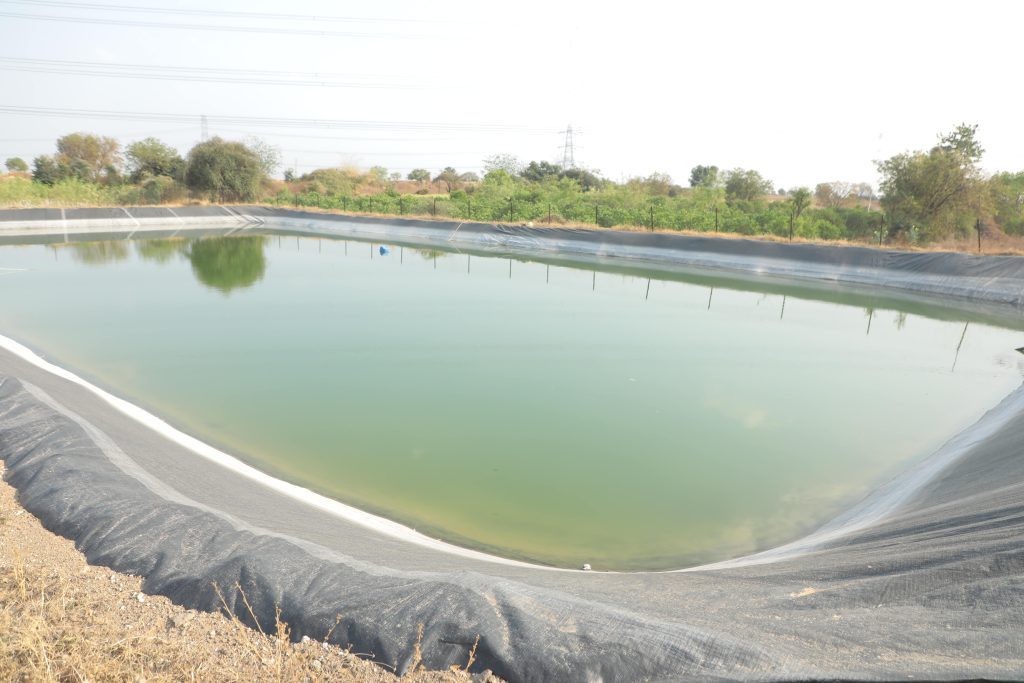
Incubation & Entrepreneurship Development
Partnerships - Ideation - Incubation - Sustenance
SDG 17
There is lot to do to, but less resources (time, money and human effort) for application. NSFI in its efforts to enable scale up of interventions and their positive impact, pursues this area of work on an ongoing basis. In this direction, NSFI is not only working towards establishing social enterprise that brings positive developmental impact on equity and inclusion principles, but supports last mile ecosystem support to communities and build their capacities for lasting impact.
Impact Factor
NSFI acknowledges the contribution of the collaborating and grant making partners of mentioned interventions for the impact the organisations have been creating. Further, various partners and teams of these organisation, their collaborators paved the way for creating a positive impact by www.asci-india.org; www.skillgreenglobal.com.
Unique Factor
Impact sustenance beyond project geographies and timelines is the priority area from day 1 of the project.

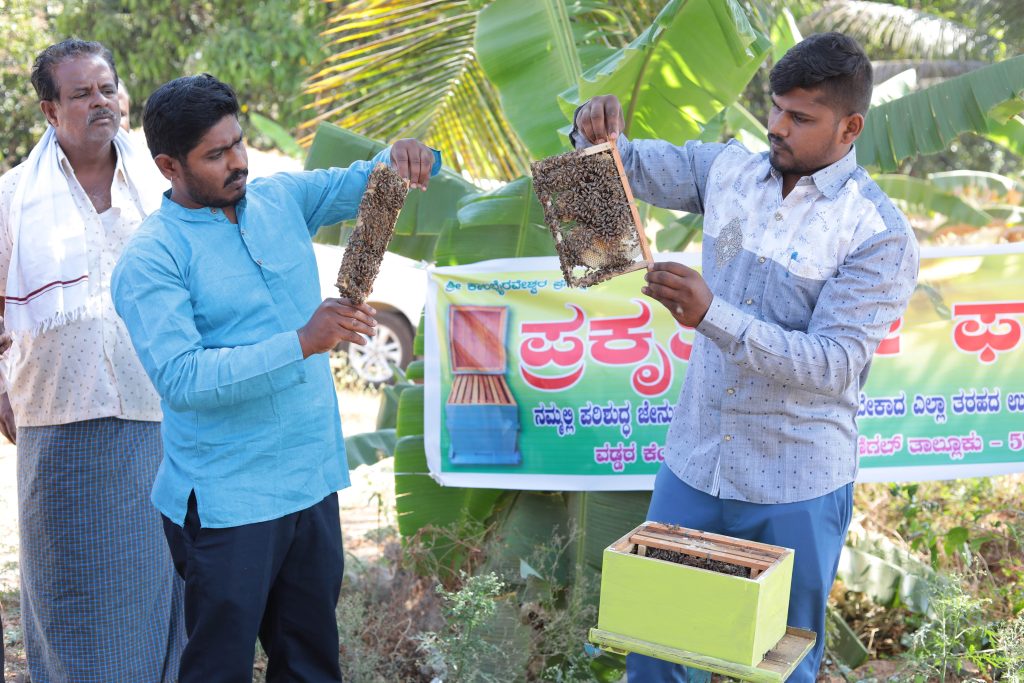
Digital & Financial Literacy / Inclusion
SDG 4
SDG 8
SDG 9
Geographies
Haryana & Rajasthan; Tamil Nadu, Karnataka, Andhra Pradesh; National Outreach
Multiple projects that involved Sustainable Practice Adoption in Sugarcane, Mango, Wheat, Paddy, vegetable crops and other crops with various funding partners, were taken up in the domain of Financial Literacy. The objective of the projects is to inform, educate and build hands-on skills of poor so that they could adopt sustainable practices, leverage financial services and social security schemes of the Government by applying digital literacy skills, and to educate the target group on importance of regular savings, investments, credit opportunities and insurance (crop insurance and others). Further, the digital inclusion interventions included capacity building of various civil society organisations / social enterprises to reach the communities in rural hinterlands towards their increased digital and financial access to markets and other services
Impact Factor
NSFI target groups include farmers, agri entrepreneurs offering various goods & services in agri value chains, farmers institutions cooperatives and farmer producer organisations. NSFI through its own staff and partners' has contributed to agriculture and livelihoods across the length and breadth of the country with more than 1 Lakh farmers, more than 100 FPOs and more than 500 entrepreneurs.
Unique Factor
Life-cycle approach imparting application skills for modern communication media & channels.


Agriculture & Livelihoods
Capacity Building - Demonstration - Research - Farming as Enterprise
SDG 1
SDG 2
SDG 12
Geographies
Tamil Nadu, Karnataka, Andhra Pradesh, Maharashtra, Madhya Pradesh, Rajasthan, Haryana, Uttar Pradesh, West Bengal, Jharkhand, Odisha.
Increase their access to information, technologies & innovations through market and value chain integration is the Mission that NSFI pursued since its inception. In this direction, research & analysis of various technologies / innovations, their demonstrations on the field, their promotion among farming communities and advocacy to scale up the successful technologies and innovations has been systematic approach of NSFI. NSFI served farmers in more than 24 States and contributed to the farming communities in Afghanistan and Indonesia. The focus of all activities in the domain of Agriculture & Livelihoods has been on the income and expenditure of farming activities and the financial benefit that accrues to the farming community, especially the small and marginal farmers.
Impact Factor
-
Over 48,500 farmers have been trained between 2015-2019
-
Over 60% farmers have shown interest in adopting to mobile and internet banking system.
-
About 90% of the farmers were trained on importance of regular savings, investments, credit opportunities and insurance (crop insurance and others).
-
Capacity Building of Civil Society Organisations (CSOs) / Social Enterprise in digital marketing & finance modalities
-
Fund Raise for CSOs / Social Enterprise for sustainability
Unique Factor
Behavioural change communication and orientation of Farms as Enterprises / Businesses

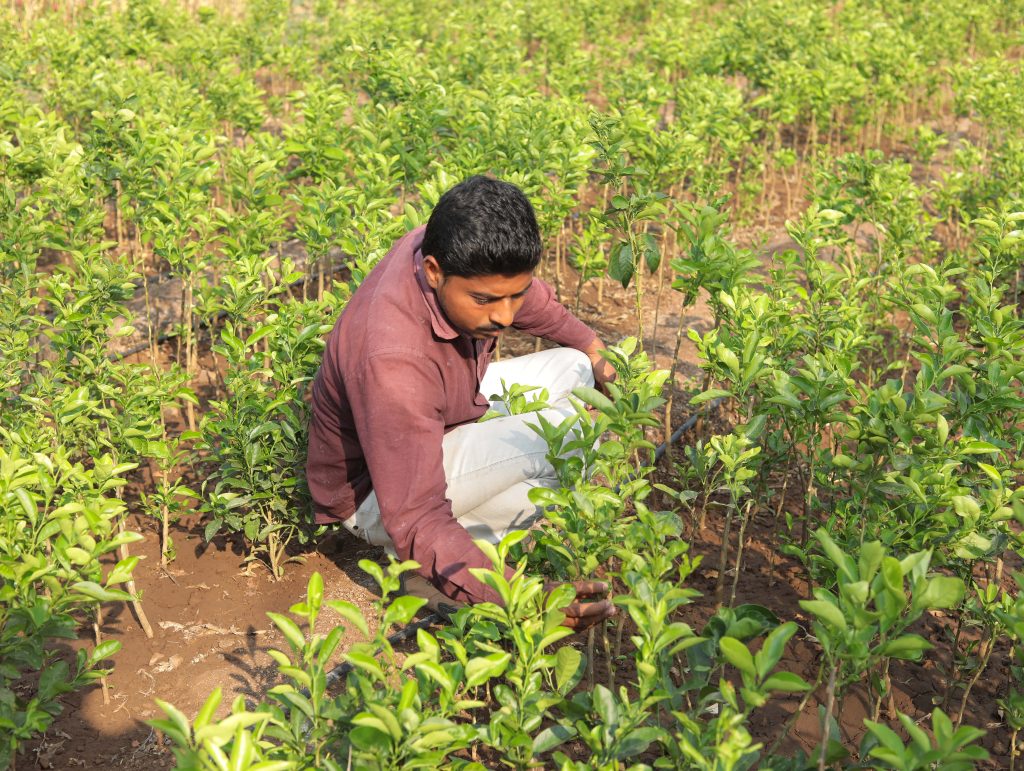
How
Research & Evidence Building
Programme Implementation
Policy Advocacy
Incubation
Sectors NSFI operates in
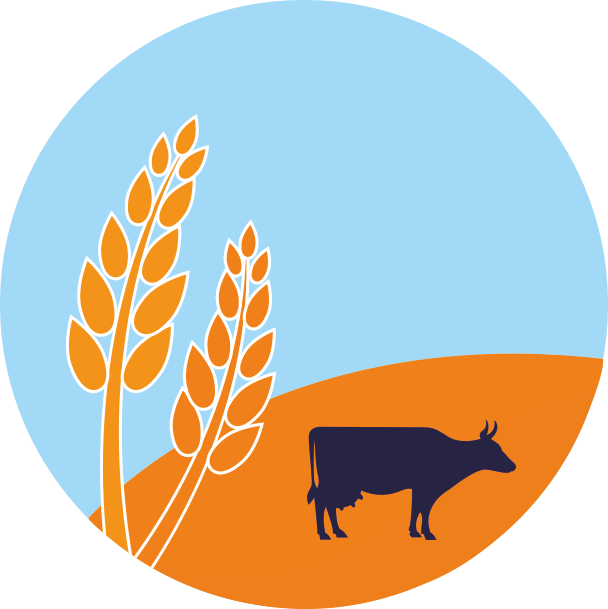
Agri and Allied Sectors
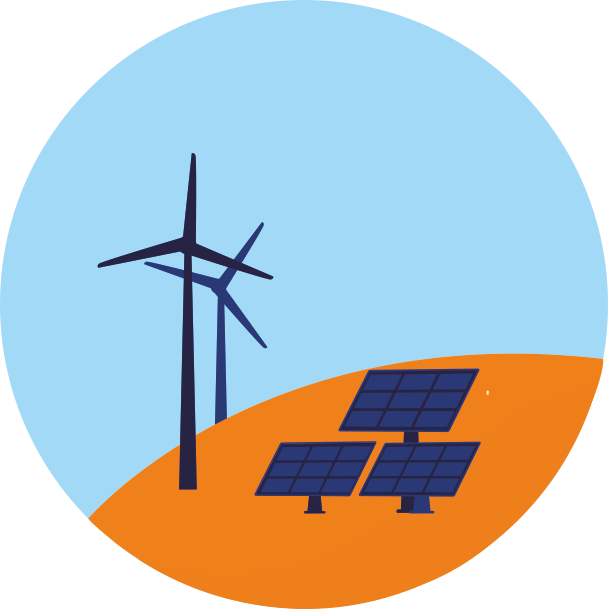
Renewable Energy & Environment
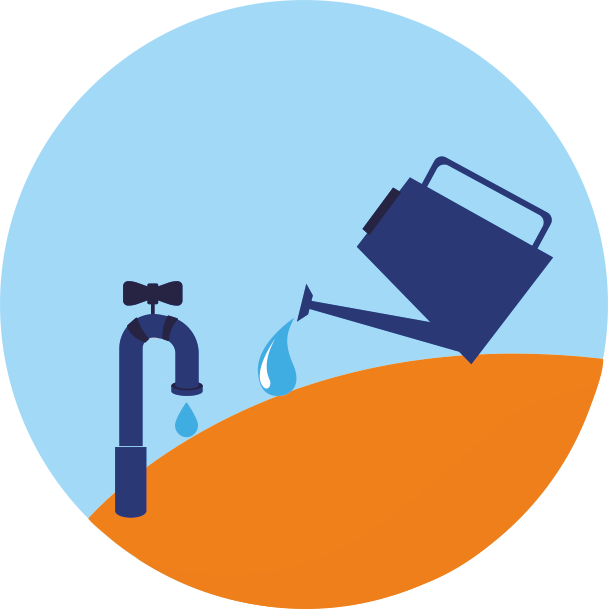
Water & Sanitation
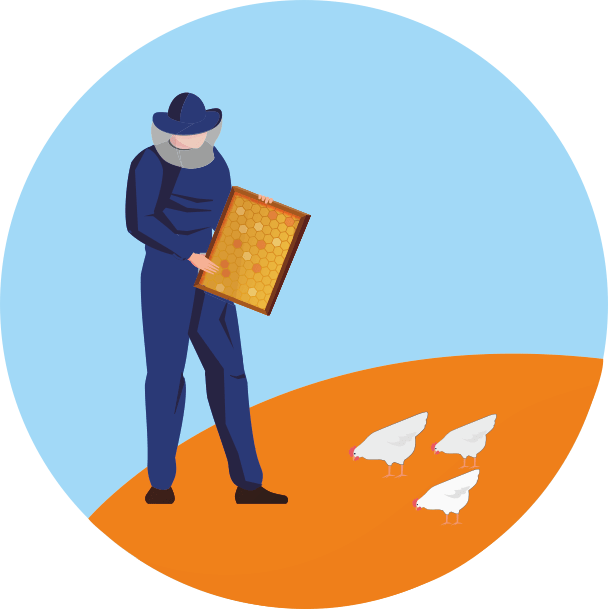
Non-Farm Livelihood
NSFI’s functional alignment with Schedule VII of The Companies Act 2013
SDG 05: Gender Equality
SDG 13: Climate Action
SDG 1, 2 & 12: Agriculture & Livelihoods
SDG 4, 8 & 9: Digital & Financial Literacy
SDG 17: Incubation & Entrepreneurship Development
Activities Schedule VII of The Companies Act 2013
(i) Eradicating hunger and poverty
(ii)Promoting employment by enhancing vocational skills among women, and livelihood enhancement projects.
(iii)Promoting gender equality, empowering women and measures for reducing inequalities faced by socially and economically backward groups.
(iv) Ensuring environmental sustainability, ecological balance, protection of flora and fauna, animal welfare, agroforestry, conservation of natural resources
(v) Promoting Sustainable Development Goals (SDGs)
(ix-a) Contribution to incubators or research and development projects in the field of science, and technology
(ix-b) Promotion and development of traditional arts and handicrafts engaged in conducting research
(x) Rural development projects
